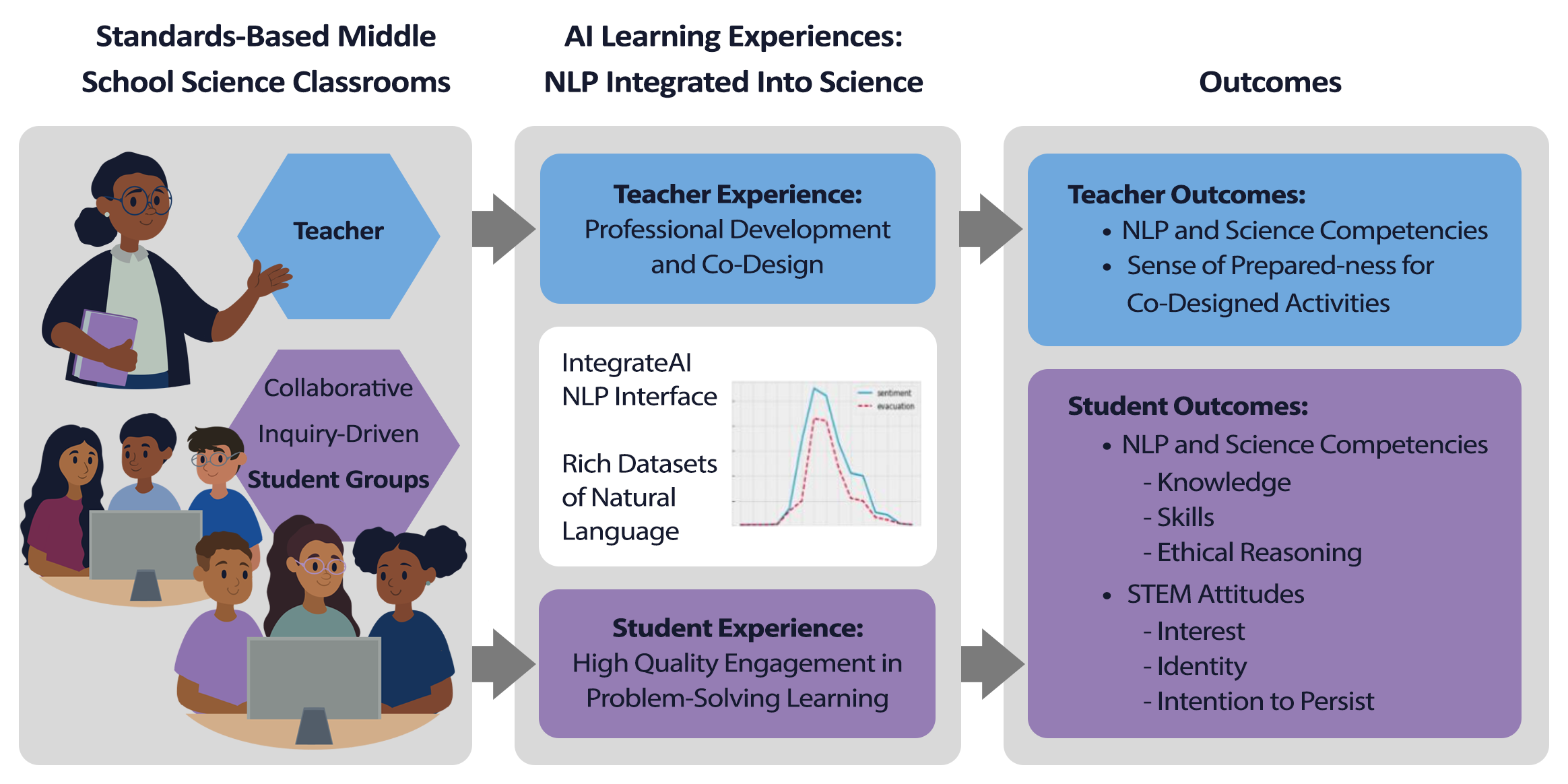Integrating AI into Middle School Science
Introduction

Of AI’s many subfields, natural language processing (NLP) is one of the fastest growing. “Natural language” refers to the ways humans communicate with each other, be it through speech, such as in-person conversations and phone calls, or text, such as Twitter, news articles, and text messages. Billions of natural language exchanges happen and are recorded online everyday. With NLP, people can harness the power of AI to automatically understand huge datasets of natural language to answer pressing questions that could benefit society. For example, NLP researchers have long analyzed Google searches related to “flu remedies” to create maps of influenza outbreaks before affected people report their illness to medical authorities. Researchers have also used Twitter data from severe weather events such as hurricanes and blizzards to catalog how people talk about warnings and responses. This project is led by PI Kristy Elizabeth Boyer, PI Krista Glazewski (School of Education, Indiana University), co-PI Mehmet Celepkolu (Computer Science, University of Florida), Co-PI Cindy Hmelo-Silver (School of Education, Indiana University), Co-PI Asmalina Saleh (Center for Research on Learning and Teaching, Indiana University), Co-PI Thomas Brush (School of Education, Indiana University).
Project IntegrateAI will integrate AI learning through NLP into middle school science through participatory co-design with middle school teachers. Middle school science provides an excellent context for integrating NLP because of the focus on inquiry-oriented science and the value in being able to identify and use textual resources. Project IntegrateAI will bring potentially transformative learning experiences to middle school teachers and students: for teachers, we will support development of competencies (knowledge and skills around NLP and science; ethical reasoning) as well as achieve a sense of preparedness to bring authentic, inquiry-based NLP experiences into their science classrooms. For students, these innovative experiences will foster competencies (knowledge and skills around NLP and science; ethical reasoning) and attitudes toward STEM careers (interest, identity, and intention to persist).
Theory of Action
Project IntegrateAI’s theory of action centers on co-designing classroom activities with teachers through robust teacher professional development (PD) in NLP, and links these innovative technologies to meaningful classroom practice. The PD prepares teachers on the Big Ideas of AI, and supports their ability to integrate NLP into their science classrooms. This co-design approach ensures teachers feel ownership of the ideas they are teaching in their classrooms.
IntegrateAI Learning Environment Development and Iterative Refinement
The IntegrateAI learning environment provides students access to datasets, a curated set of code libraries for the NLP functions that accompany their science learning activities, and a structured interface, which provides a rich set of extensions to generate interactive graphs and visualizations.
Fostering Complex Problem Solving
Leveraging practices from Problem-Based Learning (PBL), IntegrateAI is designed to flexibly integrate with middle school science classrooms and provide rich, contextual, in-depth exposure to AI integrated into science. The integrated curriculum draws on the NGSS three-dimensional learning framework as a means to articulate key dimensions of AI integrated into science.
